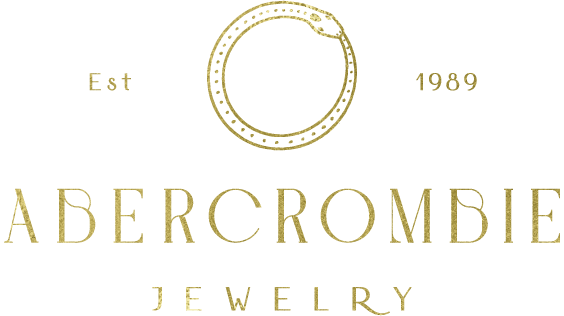A jewelry appraisal is an essential process for any individual or business to consider when it comes to assessing the worth of a piece of jewelry. Whether you are looking to sell a necklace you’ve inherited, ensure a diamond ring, or determine the price of a piece of jewelry in a retail setting, having an accurate appraisal is critical.
A jewelry appraisal is an essential process for understanding the value of a piece of jewelry. Whether you want to ensure your jewelry or understand its worth, having a professional appraisal can be invaluable. While many people understand the importance of jewelry appraisal, it is common for them to question the associated costs.
Types of Jewelry Appraisals
Jewelry appraisals are assessments of the value of an item of jewelry and can be conducted in various ways. An appraisal is often an essential step in buying, selling, or even insuring your jewelry. It is an essential part of determining what a piece of jewelry is worth and is typically conducted by a professional jeweler or gemologist. Depending on the particular needs and desires of the customer, a variety of different types of appraisals can be offered. Each type of appraisal serves its purpose and provides a comprehensive overview of the value of the jewelry piece. Some of the types of jewelry appraisals include:
- Insurance Appraisal
- Fair Market Value Appraisal
- Divorce Appraisal
- Estate Appraisal
- Tax Deduction Appraisal
The Cost Associated with A Jewelry Appraisal
The cost of a jewelry appraisal can vary greatly depending on the item’s complexity. A professional appraisal typically requires the expertise of a professional gemologist who can accurately evaluate the item’s gemstones, metal content, and craftsmanship. Appraisals can range from a few hundred dollars to thousands of dollars depending on the value and complexity of the item. When considering an appraisal, weighing its cost against the item’s value is crucial. Sometimes, a professional appraisal can mean receiving a fair market value for your jewelry instead of selling it well below its worth.
Factors That Can Influence the Cost of Jewelry Appraisal
When it comes to jewelry appraisals, understanding the factors influencing the cost is vital for any jewelry owner. An appraisal is a crucial step to determine the monetary value of a piece of jewelry in the case of insurance, damage, or loss. It can also be used for estate planning and asset assessments. Knowing the various components that can contribute to the cost of the appraisal can help ensure that the appraisal is accurate and beneficial for the jewelry owner. A solid understanding of the various components that can contribute to the cost of an appraisal is of utmost importance. Knowing the factors affecting the final cost can help you budget accordingly and make informed decisions regarding your appraisal needs.
Here are some factors that can influence the cost of jewelry appraisal.
1. Quality and Type of Jewelry
Regarding jewelry appraisal, the quality and type of jewelry can significantly affect the cost. More intricate pieces, made of precious metals or those with rare gemstones, will cost more to appraise than simpler pieces, such as costume jewelry. That’s because the more complex pieces require more expertise, time, and effort to appraise. Antique, estate, or vintage pieces can also be more costly to appraise due to their historical and emotional value. Mass-produced jewelry can be less expensive to appraise since it often needs more intricate details and nuances than more custom-made pieces.
2. Extent of Appraisal
A highly detailed appraisal often comes with a higher price tag than a cursory assessment. More in-depth appraisals may require additional testing, research, and analysis that can drive up the cost of the appraisal. More complex pieces of jewelry with multiple components, like a watch with a diamond face, may require a more thorough appraisal with greater detail, leading to increased fees. Specialized jewelry appraisals, such as those for estate or insurance purposes, may require an even higher level of expertise and evaluation, which can add to the cost of the appraisal.
3. Credentials of the Appraiser
The appraiser’s credentials can significantly influence the cost of jewelry appraisal. When considering the credentials of an appraiser, it is essential to take into account the appraiser’s qualifications, industry experience, and credentials for jewelry appraisal. An experienced appraiser with solid industry knowledge is more likely to provide an accurate evaluation of a jewelry item than an inexperienced appraiser. An appraiser with a track record of success and a high level of expertise will also be able to provide more detailed and accurate appraisals.
4. Geographic Location
The cost of jewelry appraisal can vary greatly depending on the geographic location of the appraiser. In some areas, a jewelry appraisal may be more expensive due to a higher demand for appraisers. When it comes to jewelry appraisal, experience, and expertise is critical. Therefore, appraisers in high-demand areas may charge more for their services. Living in certain areas may also impact the cost of jewelry appraisal. It is common for appraisers to factor in the cost of living when setting their rates, as they have to cover overhead expenses like rent and utilities to stay in business.
5. Complexity of the Appraisal
The appraiser needs to consider several factors when assessing the value of a piece, from the quality of the materials used to the craftsmanship and design. Every detail needs to be considered, which can take time, resulting in an appraisal that can cost more than a simpler appraisal. The type of jewelry being appraised, its age, and the materials used can all make a difference. Antique jewelry may require additional research and analysis to determine its exact value, which can add to the cost.
